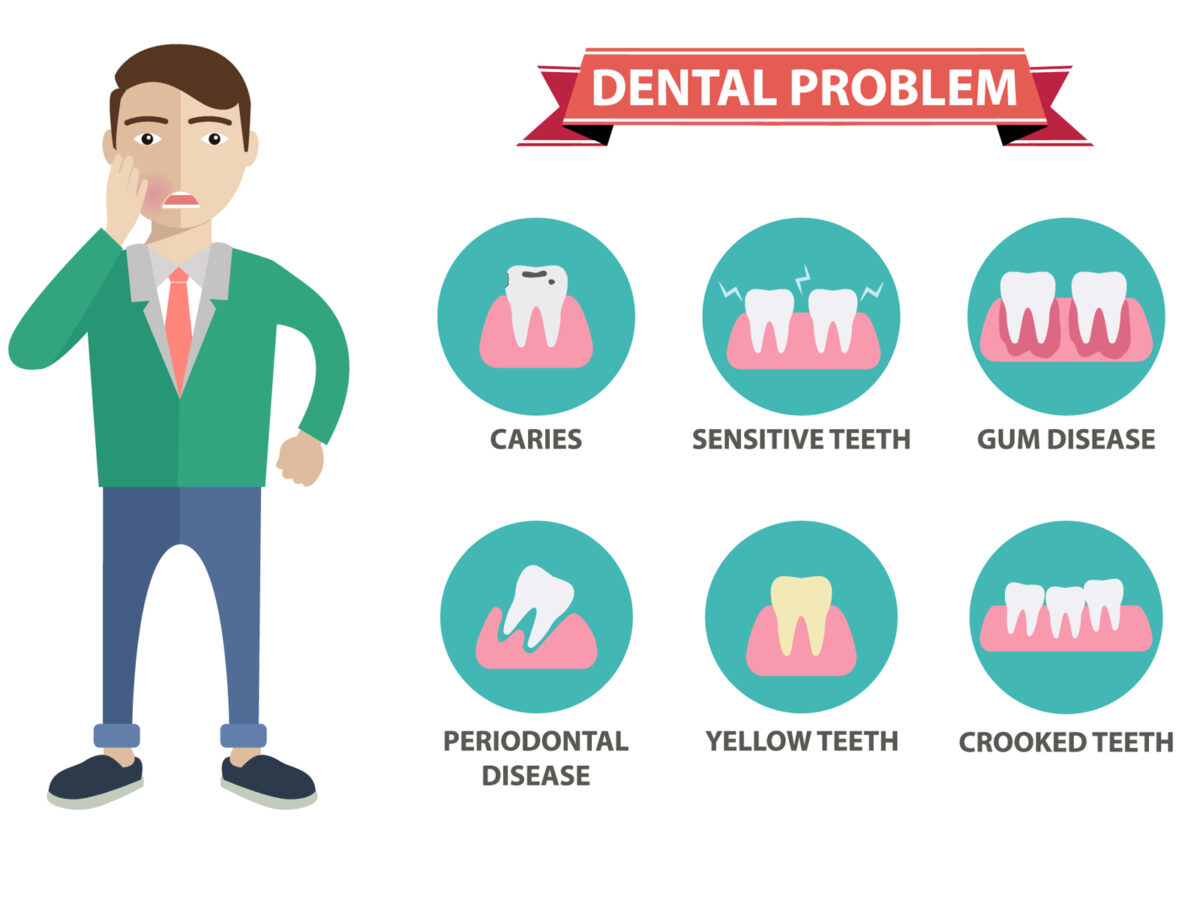Blog
Dental hygiene tips for healthy teeth & gums

What are the Most Common Causes of Tooth pain?
You can get a toothache for a variety of reasons, such as a hulk of popcorn getting stuck in your gum or a bacterial infection, or it could also be a broken tooth. But whatever the reason, tooth pain is something none of us can ignore. Whether it is a dull pain or a severe sharp one, a toothache can give us sleepless nights if not attended to in due time.
You experience tooth pain when any nerve in the tooth’s root or in the surrounding area is irritated. Some of the most common causes of toothache are dental infection, tooth injury, tooth decay, or loss of a tooth. Sometimes the pain could also emanate from a different area but radiate towards the jaws and make it appear like tooth pain. Some of the common areas are TMJ (Temporomandibular joint), sinuses, ear infections, and in rare cases, it could also be heart problems.
What Does Tooth Pain Look Like?
Toothache appears in or around a tooth, and it could range from mild to severe depending on the reason for tooth pain. You might feel any or all of the following things:
- Swelling in or around your gum or tooth and throbbing pain.
- Shooting pain when you bite down your teeth or touch them.
- Fever.
- Pain or tenderness in and around your tooth.
- Shock-like or burning sensation (rare.)
- Sensitivity in your teeth while drinking extremely hot or cold beverages.
Most Common Underlying Reasons for Toothaches
You might think that something noticeable needs to happen before you get tooth pain, but many times you might not see it coming. Reasons for toothache are varied, it could be bruxism (teeth grinding), gingivitis, impacted wisdom teeth, excess bacteria, etc. Here are some of the most common reasons for tooth pain:
- Tooth decay or cavity – A dental cavity is the most common reason for toothaches. Poor oral hygiene, such as not brushing properly or flossing regularly, is the most significant source of cavities in teeth. As bacteria eats away at your tooth, it creates a hole that keeps getting deeper with time. If you eat lots of sugary food, that could also give you cavities pretty quickly because your saliva mixes with the sugary food and eats away at your teeth. Cavities are hard to catch early, so it is vital to keep a check on them and visit your dentist regularly.
- Dental abscess – When the pulp chamber of your tooth is infected, it results in an abscessed tooth. The infection has reached the root tip of your tooth, resulting in swollen gums, severe pain, infected root, and possibly loss of bone at the infection site.
- Gum disease – Also called gingivitis, gum disease is also caused by not maintaining proper dental hygiene. Due to plaque build-up over time, your gum might become red and start to swell and bleed. In its mild form, gingivitis might not be so painful, but if left unattended, it can lead to something called periodontal disease, which is a more severe form of gingivitis. You could lose your teeth if you do not get treated for gum disease in time.
- Trauma or injury – A dental injury could result in a broken or knocked-off tooth which could cause tooth pain. If your tooth gets broken, cover its jagged edges with tape or gum so that they do not cut your cheeks, gum, or tongue till your appointment.
- Teeth grinding – Bad dental habits such as grinding teeth or biting down hard on it can result in toothaches. This is also called bruxism. Pain due to grinding teeth is generally associated with TMJ or temporomandibular joint.
- Wisdom teeth – If you have pain in the bottom or upper molar areas then it is time to have your wisdom teeth removed. The pain would continue to grow as your wisdom teeth grow, and they can also affect bones and nerves in the surrounding areas if they grow sideways or misaligned.
Causes for Referred Tooth Pains
- If your sinuses get inflamed due to bacterial, viral, or fungal infections, it can result in a condition called sinusitis. Since your sinuses are close to the roots of the upper teeth, you can get pain in the upper teeth region due to sinusitis.
- Lung cancer or heart disease can also give tooth pains. This is due to the location of the vagus nerve in our bodies which runs from our brains to different organs inside our bodies. This nerve also runs through the heart and lungs and through the jaw.
- Some rare causes of referred tooth pain could be occipital neuralgia and trigeminal neuralgia. These two are neurological conditions that cause inflammation of occipital and trigeminal nerves. These nerves run through your skull, face, and teeth, so when they are irritated, the pain could seem to come from teeth.
It is essential that you go for regular dental checkups and do not ignore toothaches since they could lead to tooth loss or they might even be warning signs of heart or lung disease. You can take preventive measures if you can catch these diseases before they get worse.


